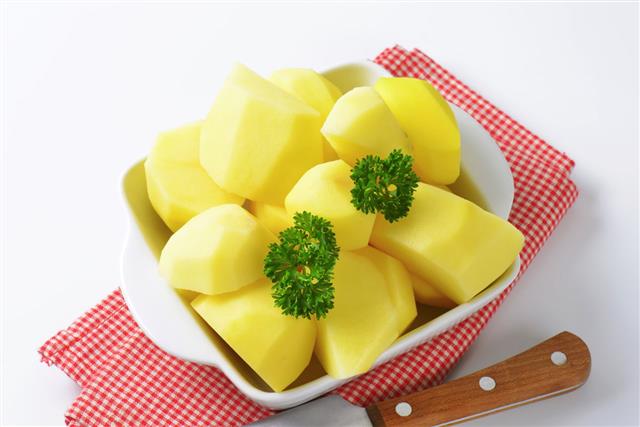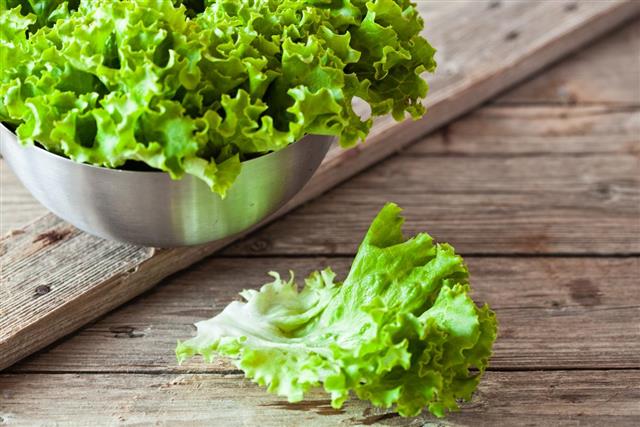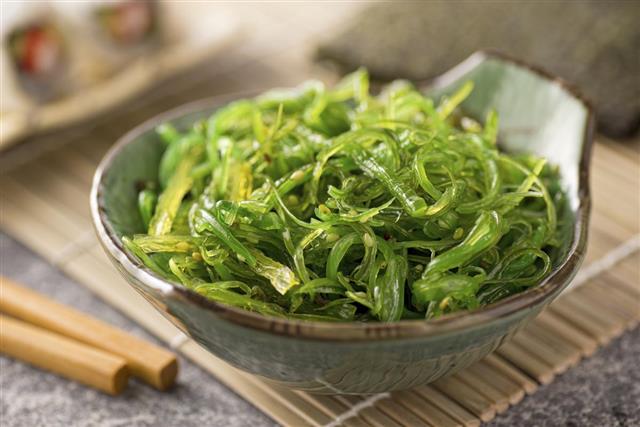
Following a proper diet can help in alleviating the symptoms of esophagitis. Presented below is a list of foods safe to consume and those to be avoided in the eosinophilic, reflux, and Candida esophagitis diet plan.
The esophagus is a muscular tube connecting the mouth to the stomach. Inflammation of the esophagus is called esophagitis. Food allergy, infections, Candida infection, acid reflux disease (GERD), surgery, use of certain medications like anti-inflammatory drugs, etc., are the prominent causes of this condition. It can be observed in people of any age group, and is a common disease of the esophagus. The symptoms of this condition include pain and difficulty while swallowing, heartburn, nausea, vomiting, etc. Following a diet helps in reducing the severity of the symptoms.
Foods Safe to Consume
All soft and non-spicy foods can be safely consumed. The key lies in consuming foods that are healthy and easy to swallow.
- Mashed potatoes, soft, cooked green vegetables, bananas, cooked peaches, applesauce, squash
- Cooked cereals, cooked soft brown rice, oatmeal, multigrain breads
- Egg white, lean meat, skinless chicken
- Soups, broths, puddings, custards, juices, smoothies
- Low-fat dairy products (in small quantities)
- Water, herbal tea, green tea. If you find it difficult to swallow liquids, you can use a straw to have smaller sips.
Foods to Avoid
Doctors or dietitians will frame a detailed diet plan to treat the symptoms of esophagitis. The following is a list of foods to be avoided in this diet.
You should stay away from foods that:
Irritate the throat and esophagus
Are difficult to chew and swallow
- Acidic foods are to be totally avoided as they tend to erode the esophagus and lead to further inflammation. Foods like corn, lentils, olives, tomatoes, lemon, all citrus fruits, currants, blueberries, cranberries, milk, yogurt, cheese, butter, all red and organ meats, seafood, nuts, and seeds, etc., contain high amounts of acids, and hence, should be avoided from the diet.
- Spicy foods should also be specially avoided in the erosive esophagitis diet, as they irritate the esophagus. Therefore, you need to avoid chili, chili powder, spices, curries, etc., to reduce erosive esophagitis symptoms.
- Tomatoes and tomato based products should be specifically excluded from the GERD diet as it can aggravate acid reflux. Therefore, tomatoes, tomato sauce (marinara, salsa), ketchup, puree, tomato based dishes like pasta, spaghetti, pizzas, stuffed tomatoes, etc., should not be consumed.
- Raw and hard foods (raw vegetables, nuts, and meat) should be avoided as they are difficult to chew and swallow.
- When suffering from eosinophilic esophagitis, soy, milk, and milk products are to be avoided as they worsen the condition.
- Fried and fatty foods contain excess oil that can irritate the esophagus. Therefore, it is wise to stay away from these foods. Avoid consuming fries, crisps, nuggets, and all other fried foods.
- In the Candida esophagitis diet, sugar and carbohydrate containing foods need to be avoided. You should cut down on sweets, desserts, cakes, pastries, breads, rice, pasta. You should also avoid fermented foods.
- All caffeine containing beverages, hot drinks, and alcohol should be excluded from the diet.
Lifestyle Recommendations
Along with the diet, the doctor will also advise you to make changes in your lifestyle.
- You need to quit smoking and drinking alcohol completely as it tends to irritate the throat.
- You should have smaller meals, and eat slowly.
- In case you are allergic to certain foods, avoid them altogether.
- You should not have meals very late at night, nor lie down immediately after having meals.
- It is essential to eat healthy food and follow healthy food habits.
- If you take medications, take it according to the prescription.
Treatment of esophagitis depends on the cause. Sometimes, medications alone can help in treating the condition completely. In that case, you need to take the prescribed medications (antibiotics, antifungal medication, etc.). In severe cases, the doctor may also advise endoscopy and surgery. The aforementioned or liquid diet may also be recommended post surgery. Once the inflammation subsides, you can slowly get back to a normal diet by including other foods.
Following a diet helps in treating esophagitis to a great extent. Lastly, it is recommended to follow the diet only after consulting the doctor. Take care!
Disclaimer: This article is meant only to provide information. It is not to be used as a substitute for proper medical advice and consultation.






